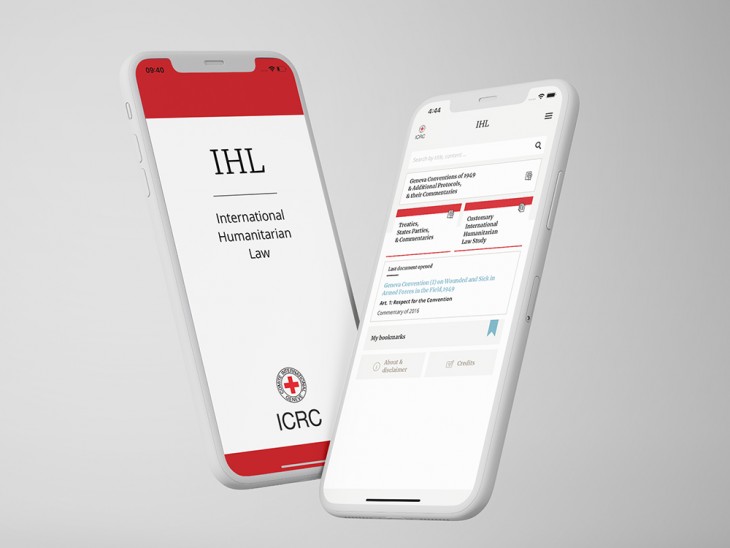On the occasion of the 70th Anniversary of the Geneva Conventions, the International Committee of the Red Cross (ICRC) is using digital technology to give greater access to the Geneva Conventions, and other treaties and rules of international humanitarian law.
IHL digital app
70 years ago, on 12 August 1949, the Geneva Conventions were adopted in Geneva. Since then these Conventions have formed the cornerstone of international humanitarian law (IHL), and have been pivotal for the protection of people affected by armed conflicts worldwide.
The IHL – International Humanitarian Law digital app provides professionals and other users with access to more than 75 treaties and other documents – most notably, the Geneva Conventions and their Additional Protocols, the ICRC’s original and updated Commentaries on the Conventions and Additional Protocols, and the rules of customary IHL identified by the ICRC’s 2005 Study. By providing easy access to IHL treaties and the customary IHL rules in various languages, the app aims to support the promotion and implementation of IHL worldwide.

Designed for use in six languages, all legal treaty articles and customary rules featured on the IHL digital app can be opened in English and French, whether on or offline, with corresponding documents also available in Arabic, Chinese (Mandarin), Russian and Spanish.
The app also allows all included texts to be searched, saved, and shared directly from the app, helping support effective use in support of everyday IHL application.
The ICRC hopes this application can help increase the use of IHL by professionals in their humanitarian dialogue and negotiation, inform law and policy debate, support the teaching and promotion of IHL, and ultimately contribute to strengthening protection for everyone affected by armed conflict.
IHL eLearning
Alongside the release of the IHL Digital App, earlier in the year the ICRC launched a new online IHL e-learning course. The Introduction to International Humanitarian Law course is aimed at non-legal audiences, including humanitarian practitioners, policy-makers and other professionals who wish to learn the basics of IHL.
The course requires no prior legal knowledge. It features nine, flexible, independent modules which introduce basic key principles, including the application of IHL, the legal distinctions between international and non-international armed conflicts, the principles governing the means and methods of warfare, the protection of the civilian population and IHL implementation.
The e-learning course is freely available with the Humanitarian Leadership Academy, and now also available through DisasterReady.org.


